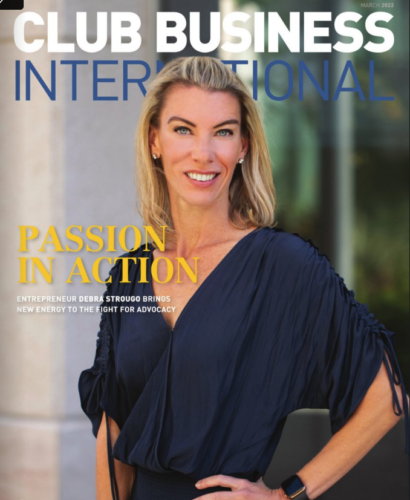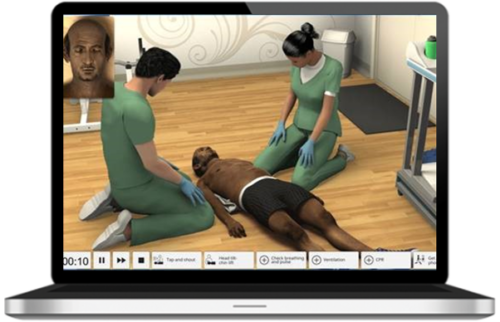INTERNATIONAL: Jatomi Fitness in Europe,Turkey and now Asia.

MICHAEL Balfour spends about six months in a year in tropical Malaysia, and says he hopes he will be able to spend more time here now that his new business has touched down from Europe.
Balfour’s story started in 1985 in Houston, Texas, when he was part of the board of directors for an upmarket health club. His four-year stint with the Houstonian Club opened his entrepreneurial eyes to what the industry lacked.
“I was with the board and that was how I realise what the Americans have done for the health club industry that we hadn’t done in the UK,” he tells StarBizWeek.
Spotting a business opportunity, Balfour returned to the UK to start a fitness club business called LivingWell. Two years on, the chartered accountant purchased a bankrupt old squash club in Bournemouth called the Queens Park Health Club.
Balfour notes that 20 years ago, people had to have a well-paying job to be a member of a health club.
“It was recognising that there was a demand here (among the ordinary citizens).”
“I had a vision of creating a health club company for the mass market,” he says, “I wanted a health club company for those who are time-short, who want to just pop by to work out and then get on with their lives without spending too much money.”
Together with his team, Balfour is a pioneer of dry clubs, or health clubs without swimming pools.
“That’s how we got the prices down. We removed the more expensive capital items but the facilities we did have, such as the gyms, studios and changing rooms were as good as those in any expensive clubs,” he says, “We just didn’t have the restaurants and swimming pools.”
Thus the brand Fitness First was born. Today, the famous brand has about 1.5 million members internationally.
Like most successful stories, Fitness First begins with its fair share of struggles. In the first four years, Balfour managed to open only five clubs.
“We struggled like everybody else (starting a business) to find the money. Then we floated on the London Stock Exchange in 1996 and that gave us access to more money,” he says. The company floated with a valuation of £14mil.
Injected with cash, Balfour opened eight clubs the following year and 13 clubs in 1998. Three years after listing, Fitness First went international.
“Eventually we were opening clubs on an average of two every week, somewhere in the world,” he gleams.
Fitness First was taken private in 2003 in a £415mil management buyout, and sold to a private equity firm in 2005. Balfour stayed on for another four years before itching for a new scene.
“It was about that time that we decided to start Jatomi,” he says of his current project. Balfour and his co-founders have invested 600 million euros in Jatomi thus far.
Enter Jatomi
Where Fitness First is for the mass market, Jatomi specialises in emerging markets starting first in eastern Europe, then Turkey and now Asia. Jatomi came to Malaysia early this year.
“By end of this year, we will have over 60 clubs,” he says, adding that the potential in emerging markets is huge. “These markets are going to keep us busy for a long time.”
Balfour believes in opportunities in the industry because “wherever you are, what people want are the same. They want to be healthy, look good and attract a boy or a girl.”
On trends affecting the industry, Balfour says that the statistics for obese people are higher than on starving people in the world now, a sign that more people need to take fitness more seriously.
And for exercise trends, clubs are going for more functional exercise now and more people prefer working with a personal trainer.
“In my opinion, there are not enough people my age exercising,” he says, pointing out a gap in the market, “Most of those who sign up for clubs are between 20 and 40 years old.
The 63-year-old thinks that clubs need to be designed to suit older people as well because longevity is increasing.
“As medical science keeps most people alive longer, they need to make sure they are fit enough to live those extra years that medical science is giving,” he says.
Balfour runs Jatomi with his son, James, who helms the chief executive position for the eastern Europe division. It is the first time that father and son have worked together. “James sort of started it and I came in later.”
Jatomi is the clever abbreviated version of the founders’ names, James, Tony and Michael.
“James is quite an athlete in his own right. He climbed Mt Everest at the age of 24, one of the youngest people to have done that and this year, he was part of the British team to walk 100 miles to the South Pole,” Balfour says proudly. “He’s very fit, very enthusiastic.”
Like any concerned parent, Balfour admits his son’s taste in sport is “far too extreme” but as to whether he has tried talking James out of it, Balfour quips: “I don’t stand a chance.”
On whether Balfour is a fitness enthusiast like his son, his response is: “No, far from disciplined.”
“Most people come into the fitness industry because they are fitness fanatics. I didn’t,” he confesses with a tinge of pink in his cheeks, “I see it as a need for people like me as a customer. I am totally aligned to 80% of the customers we have at our gyms.”
Balfour says he has to argue with himself every day whether or not to go to the gym. “Sometimes the gym wins, sometimes my laziness wins.”
However, he is a firm believer in fitness. Balfour’s ideal routine would be to exercise three times a week but he notes that travelling on business often disrupts his intentions.
Before leaving Fitness First, Balfour also started a few other businesses.
“I love starting up businesses. It’s my hobby, it’s my passion, it’s what I do.”
His philosophy on starting a business is to create a product or service that gives a lot for a lot less money.
In 2007, Balfour founded the exclusive ownership property fund The Hideaways Club with a team. The club purchases luxury villas and city-centric apartments globally which make up its fund and people who buy shares in that fund are able to own and use the villas.
The club has over 55 properties.
“This is not time share but equity share and is probably the financially astute way of investing in a property,” he says of the first-of-its-kind business model.
Whether or not he starts up businesses to sell and profit fromthem, Balfour says he prefers starting and growing businesses.
“I like to hang on to them for as long as I can.”
Legacy of optimism
Aside from starting businesses, Balfour has taken time to make a bucket list film, “to leave behind a legacy” for his family.
“I am aware that people achieved a lot of things but when they die, they’re just memories,” he says, “For the future generations, how nice it is to leave a legacy of the person who did it.”
Balfour wants to share with his grandchildren and great grandchildren how he started Fitness First, what he had to go through and what advice he has for them.
“I would have loved to know what my grandfather was thinking about and how he looked like and talked but the technology was not available then,” he says.
Balfour thought the same for companies, which after achieving a level of success, their history are often forgotten. Balfour says it is important to remember a company’s original vision so that the staff and customers can buy into what the company is trying to achieve now.
Balfour recently launched legacy films of his companies in October.
As for his personal legacy film, the kind of words he leaves behind echoes what he stood for and what his vision was as well as advice on starting up businesses. Unfortunately, the film is only for the eyes of the Balfours.
“It is hard work, and you have got to be prepared to do it. You have to be an enormous believer in yourself to keep pushing,” he says, “Not everything will go right and it’s important to have a Plan B even before you embark on Plan A.”
A key advice from Balfour is to always be agile enough to change the plan when things do not pan out as expected.
When days are dreary, Balfour’s other antidote to despair is “an enormous sense of optimism”. He admits to being accused of always looking at the bright side.
“There are an awful lot of people out there to tell you why things won’t work. I am not interested in hearing why things won’t work.”
He adds that when he started dry clubs, many naysayers thought it could not work because club-goers needed the pools and restaurants.
“Even experts said it wouldn’t work. There was a quote swimming pool or die’, which I remember reading,” he says of going against the trend, which has granted him first-mover advantage with Fitness First and The Hideaways Club.
Balfour sums up his optimism in business with: “If you could do something better, quicker and cheaper, there’s a fair chance it might succeed.”
As a manager, Balfour believes in being inclusive with his staff.
“I am prepared to change my mind when others have better ideas. I love going around the clubs talking to staff,” he says, “I get all my good ideas from them.”
Fact File
Date of birth: May 3, 1949
Place of birth: London
Qualification: Honorary doctorate in Business Administration, Bournemouth University
Career: Executive chairman of Pure Jatomi and chairman of The Hideaways Club
Recognition: PWC Entrepreneur of the Year, 1999; Ernst & Young Entrepreneur of the Year, 2001; Order of British Empire for services in business, 2008; Lifetime Achievement Award by The American Fitness Industry, 2010
Hobbies: Building companies
Values: There are solutions to every problem. People don’t spend enough time analysing problems.
Favourite place: South Africa and Thailand for holidays
Favourite food: Thai and Italian










































































